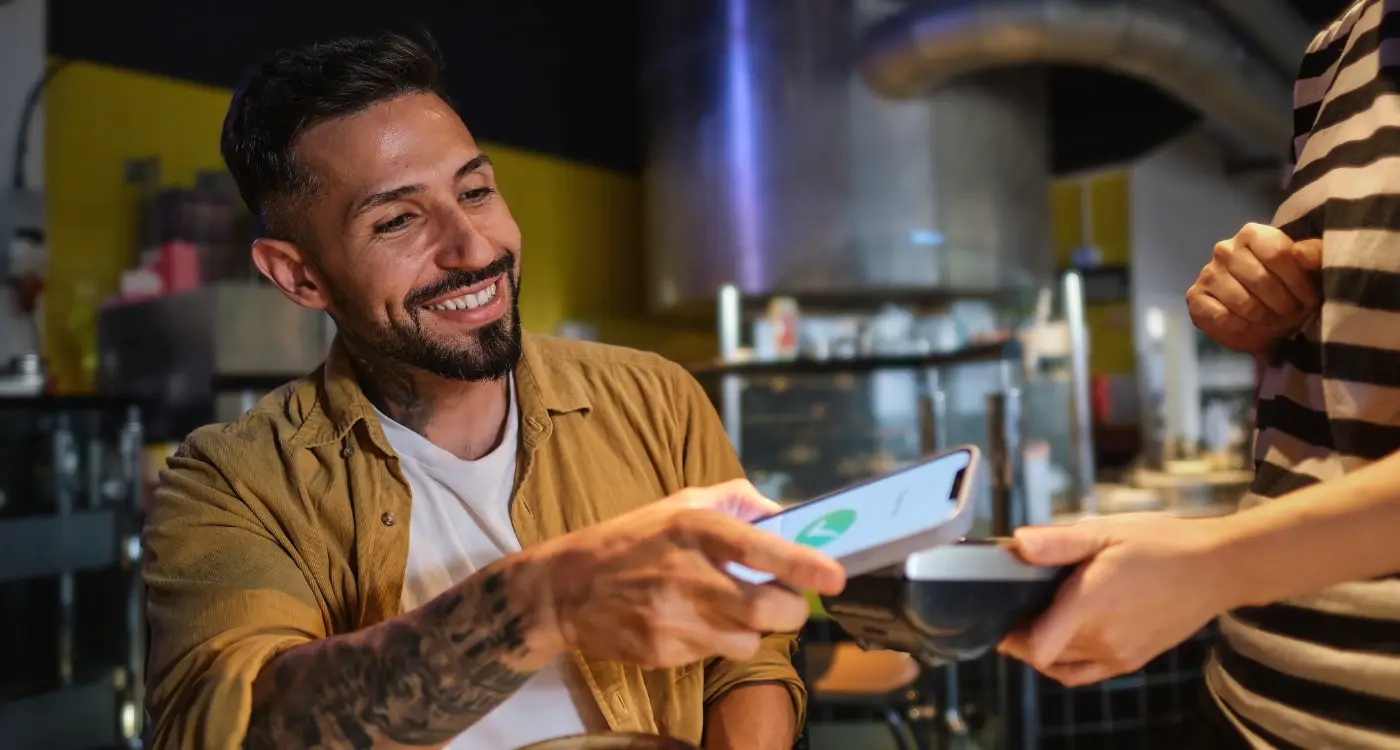How Do I Handle Ticket Sales and Payments Securely in My Event App?
You've built a fantastic event app. People love the features, the design looks great, and everything works smoothly. But then comes the moment when someone tries to buy a ticket—and suddenly you're hit with a wave of anxiety. Will their payment go through safely? What if their card details get stolen? What if something goes wrong and they blame your app?
Here's the thing: handling ticket sales and payment security isn't just about ticking a box or meeting basic requirements. It's about protecting your users' money, their personal information, and your reputation all at once. One security breach or payment issue can destroy years of hard work building trust with your audience. And let's be honest—most app developers didn't get into this business to become payment security experts.
The average cost of a data breach involving payment card information can reach hundreds of thousands of pounds, but the damage to user trust often costs much more
But here's some good news: you don't need to become a cybersecurity expert overnight. Throughout this guide, we'll walk through everything you need to know about securing ticket sales in your event app. From choosing the right payment gateway to protecting customer data during transactions, we'll cover the practical steps that actually matter. By the end, you'll have a clear roadmap for building payment features that keep your users safe and your business protected. No technical jargon, no overwhelming theory—just straightforward advice that works in the real world.
Understanding Payment Security Basics
When you're handling ticket sales through your event app, you're asking people to trust you with their money and personal details. That's a big responsibility—one that can make or break your entire business if you get it wrong. Payment security isn't just about fancy encryption (though that's part of it); it's about creating a system where customers feel safe handing over their card details.
At its core, payment security protects three main things: the customer's payment information, your business reputation, and the actual money changing hands. Think about what happens when someone buys a ticket through your app—their card details travel from their phone, through your systems, to your payment processor, and finally to their bank. That's a lot of stops where things could go wrong.
The Building Blocks of Secure Payments
There are several layers that work together to keep payments secure. SSL certificates encrypt the connection between your app and your servers—you'll see this as the padlock icon in web browsers. Then there's tokenisation, which replaces sensitive card data with random tokens that are useless to hackers. PCI DSS compliance is the industry standard that governs how you handle card data, and it's not optional.
- SSL/TLS encryption for data in transit
- Tokenisation to protect stored card data
- PCI DSS compliance for handling payments
- Two-factor authentication for user accounts
- Regular security audits and monitoring
The good news? You don't need to become a security expert overnight. Modern payment gateways handle most of the heavy lifting for you—but you still need to understand what's happening behind the scenes to implement the right security measures for your app.
Setting Up Secure Payment Gateways
When you're building an event app that handles ticket sales, choosing the right payment gateway isn't just about accepting money—it's about doing it safely. After years of working with payment systems, I can tell you that the gateway you pick will make or break your users' trust in your app.
The big names like Stripe, PayPal, and Square exist for good reason; they've spent millions building secure infrastructure that most of us could never afford to create ourselves. These platforms handle the heavy lifting of payment security, which means you don't need to store sensitive card details on your servers. That's a massive weight off your shoulders from a security standpoint.
Key Features to Look For
Not all payment gateways are created equal, and some work better for event apps than others. Here's what you should be checking:
- PCI DSS compliance (this is non-negotiable)
- 3D Secure authentication support
- Fraud detection and prevention tools
- Mobile-optimised checkout flows
- Multi-currency support if you're selling internationally
- Reasonable transaction fees that won't eat your profits
Integration Best Practices
Once you've picked your gateway, the integration process needs careful attention. Use tokenisation wherever possible—this means card details get converted into meaningless tokens that can't be used by hackers even if they intercept them. Always implement SSL certificates and make sure your API calls are encrypted.
Test your payment flow with small amounts before going live. Most gateways offer sandbox environments where you can run through hundreds of test transactions without spending real money.
The checkout process should feel smooth and trustworthy. Users get nervous when they're entering payment details, so keep forms simple and show security badges prominently. A clunky payment experience will cost you sales faster than you can imagine. If you're looking for detailed guidance on implementing payments, our guide on how to take payments in your mobile app covers all the technical considerations you'll need to know.
Implementing Strong User Authentication
Getting user authentication right in your event app isn't just about keeping the bad guys out—it's about making sure your genuine customers can buy tickets without jumping through endless hoops. I've seen too many apps that either make it so difficult to log in that people give up, or make it so easy that anyone could access someone else's account.
Two-factor authentication is your best friend here. When someone logs into your app, they should receive a text message or email with a code to confirm it's really them. Yes, it adds an extra step, but people expect this level of security when they're handing over their payment details. Most users are happy to wait thirty seconds for a verification code if it means their credit card information stays safe.
Password Requirements That Actually Work
Don't go overboard with password requirements—asking for seventeen different character types just annoys people. Instead, focus on length over complexity. A passphrase like "my favourite band plays tonight" is much stronger than "P@ssw0rd1" and infinitely easier to remember. Set a minimum of eight characters but let people use spaces and common words. For comprehensive guidance on creating effective password policies for app developers, there are proven strategies that balance security with usability.
Social Login Options
Offering login through Google, Apple, or Facebook can speed things up whilst maintaining security. These platforms have already done the heavy lifting on authentication, and users trust them. Just make sure you're only requesting the permissions you actually need—nobody wants to grant access to their entire social media account just to buy concert tickets. Keep it simple, keep it secure, and your users will thank you for it.
Protecting Customer Data During Transactions
When someone buys a ticket through your event app, they're trusting you with some pretty sensitive information. We're talking about credit card numbers, billing addresses, and personal details that could cause serious problems if they fell into the wrong hands. The good news? There are tried-and-tested ways to keep this data safe whilst it moves from your customer's phone to your payment processor.
The most important thing you can do is encrypt everything. Think of encryption like putting data into a secret code that only authorised systems can read. When someone enters their card details, that information should be encrypted immediately—before it even leaves their device. This means if anyone tries to intercept it, they'll just see scrambled nonsense instead of useful data.
PCI DSS Compliance Matters
If you're handling card payments, you need to follow PCI DSS standards. These are security requirements that tell you exactly how to store, process, and transmit payment card information safely. The rules might seem strict, but they exist for good reason—they've been developed after years of learning from security breaches and data theft incidents. For fintech apps specifically, understanding how to handle PCI compliance properly is crucial for meeting regulatory requirements.
Data breaches can cost companies millions in fines and lost customer trust, but following proper security protocols prevents most attacks before they happen
Keep Data Storage to a Minimum
Here's something that catches many app developers off guard: you shouldn't store sensitive payment data on your servers at all. Instead, use tokenisation—this replaces sensitive card details with random tokens that are useless to hackers but still allow you to process future transactions. Your payment gateway handles the real data whilst you only deal with safe tokens. Understanding which data is most valuable to your business helps you focus your data protection efforts where they matter most.
Building Trust Through Security Features
Trust isn't something you can just demand from your users—it has to be earned. When people are handing over their credit card details to buy event tickets through your app, they need to feel completely confident that their information is safe. The good news is there are several security features you can implement that will make this trust-building process much easier.
Start with the visual elements that users can actually see. SSL certificates are non-negotiable; that little padlock icon in the address bar tells users their connection is secure. But don't stop there. Display security badges from recognised companies like Norton or McAfee prominently on your payment pages. These badges work because people recognise them, and recognition breeds confidence.
Transparent Security Messaging
Be upfront about your security measures without getting too technical. A simple message like "Your payment information is encrypted and never stored on our servers" goes a long way. People appreciate knowing what's happening with their data, even if they don't understand the technical details.
Two-factor authentication might seem like an extra step, but it's become expected rather than optional. Users actually feel more secure when they have to verify their identity through their phone—it shows you're taking their security seriously. Banking apps have shown us exactly what makes users trust financial applications, and many of those principles apply directly to event ticketing apps.
Building Confidence Through Transparency
Consider adding a dedicated security page to your app that explains your data protection policies in plain English. Link to it from your payment screens so users can read about your security measures if they want to. Most won't read it, but knowing it's there makes them feel better about proceeding with their purchase. Remember, trust is built through consistency—every security touchpoint should reinforce the message that their data is protected.
Handling Refunds And Disputes Safely
When you're running ticket sales through your event app, refunds and disputes are part of the territory. I've seen too many app developers panic when their first chargeback comes through—but honestly, if you've got the right systems in place, these situations are manageable.
The key is having clear refund policies that users can easily find and understand. Make sure your terms are visible during the purchase process, not buried in some legal document nobody reads. When someone requests a refund, process it through the same payment gateway you used for the original transaction. This creates a proper paper trail and keeps everything secure.
Setting Up Your Dispute Process
Payment processors like Stripe and PayPal have built-in dispute management tools that handle most of the heavy lifting. When a customer files a chargeback, you'll get notified immediately. The trick is responding quickly with the right documentation—transaction records, communication logs, and proof of your terms and conditions.
Always respond to disputes within 48 hours. Payment processors favour merchants who act fast and provide clear evidence.
Protecting Your Business
Keep detailed records of every transaction, including timestamps, user IP addresses, and any communication with customers. This data becomes gold when you need to defend against fraudulent chargebacks. Most legitimate customers will contact you directly before going to their bank, so make it easy for them to reach your support team.
Remember, a good dispute process protects both you and your customers. It builds trust when people know they can get help if something goes wrong with their ticket purchase. Additionally, securing your app's API endpoints is crucial for preventing unauthorised access to transaction data, and there are proven methods to protect your API from security threats.
Conclusion
Building secure payment systems for event apps isn't just about ticking boxes—it's about creating something your customers can trust completely. When someone buys a ticket through your app, they're putting their faith in you to keep their money and personal details safe. That's a big responsibility, but one that's absolutely manageable when you follow the right steps.
The foundations we've covered—from choosing PCI DSS compliant payment gateways to implementing proper user authentication—work together like pieces of a puzzle. Each security measure strengthens the others; your encryption protects data whilst your authentication confirms legitimate users, and your secure gateways handle the heavy lifting of payment processing. None of these elements work in isolation, which is why taking a comprehensive approach matters so much.
What I find interesting is how security features can actually become selling points for your app. When customers see clear security badges, straightforward refund policies, and transparent payment processes, they don't just feel safer—they're more likely to complete their purchases. Good security isn't invisible; it builds confidence that translates directly into better conversion rates and customer loyalty.
The event ticketing space is competitive, but apps that prioritise security stand out. Users have become quite savvy about digital security, and they'll quickly abandon apps that feel risky or unprofessional. By implementing the security measures we've discussed, you're not just protecting your business from fraud and data breaches—you're creating a foundation for long-term success that your customers will appreciate and trust.
Share this
Subscribe To Our Learning Centre
You May Also Like
These Related Guides

How Can I Build Bulletproof Enterprise App Security?

How Do I Handle Online Payments Securely in My Restaurant App?



